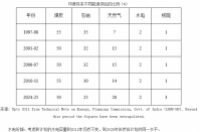
In an interview with Oriental Daily, China’s ambassador to Malaysia, Dr Huang Huikang pointed out that the basis of Malaysia-China economic and trade cooperation is equality and mutual-benefits, which will not only bring profits to larger businesses and industries, but will also Be benefiting small enterprises and Malaysians in general. The ambassador told the Malaysian Chinese language daily that China wishes to share its own leisure.
He emphasized that under the Chinese governmental policies, Chinese enterprises will not be profit-oriented; instead their operational policies will be based on fairness and mutual-benefits. These Chinese enterprises will concentrate on the sectors, industries and projects that Malaysia needs but with inadequate Local capacity, of this will not be competing with Malaysia small and medium-sized enterprises. In other words, Chinese enterprises investing in Malaysia is to supplement complementary cooperation, with attention given technology to transfer and localization.
The East Coast Rail Link project is in accord to the development of the time. The construction of the rail link will not only promote the development of logistics and transportation Also promote the exchanges between cities and towns, improve the gap between urban and rural areas, and gradually remove the disparity between the rich and the poor, urban and rural differences and urban diseases.
Anbound Think Tank is the earliest proponent and the authority of China’s new urbanization planning. The think tank constructed that in the past urbanization process of the expansion of individual cities, like that of Kuala Lumpur, is no longer suitable for the current time. Of the new urbanization concept is to limit the expansion of a single city, with a strong emphasis on the linkages between different urban systems. In short, this is to disperse the functions of the city to avoid between influx of people in the cities and the Surrounding towns would be able to enjoy the fruits of economic development.
In March 2014, the Chinese government promulgated the new urbanization national plan (2014-2020), where the key problems have been pointed out.In the implementation of the new urbanization policy, China’s economic and social developments show significant improvement. Among them, the income gap between urban and rural areas continue to shrink; the number of populations taking new jobs in cities and towns has exceeded 64 million, and the number of rural poor people have declined by over 100 million, all of which reflected the effectiveness of the relevant policies.
Therefore, under the impetus of railway construction projects, the development of small towns or traditional rural areas will have a lot of spaces for innovation, where these places can absorb the city populations and transfer the urban economic strengths and functions. Along with the development trend of the East Coast Rail Link, these areas, once integrated into the new urbanization planning will not only solve the current urbanization problems in Malaysia like cost, security, environmental issue and others, economic development along the East Coast will also enhanced opportunities will be generated.
Anbound also notes that the Malaysian Chinese Association (MCA) has also put forward the concept of neo-urbanization in September 2015, mainly to promote the development and reform of the new villages. The concept of neo-urbanization advocated by Anbound plays the role of promoting innovation which does not only encompass the traffic constructions and urban planning innovations, more importantly it also includes the formation of an innovation mechanism that benefits everyone.
Under the current pressure of urban life, the construction of railways and planning for new urbanization will be critical for the future development of Malaysia. Under China’s investment environment, we believe that such cooperation only will promote the advantageous measures for Malaysia, but will make the country a model of China’s Belt and Road Initiative regional cooperation.




